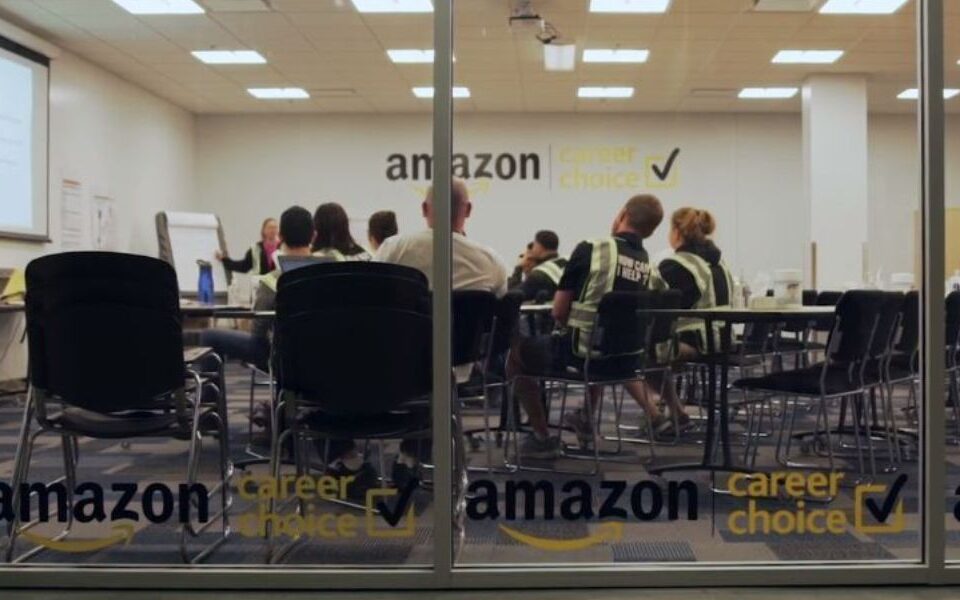- Have any questions?
- 888-432-8878
- steve@sebackground.com

Taking the Team Forward—Love’s Employee Education Program
June 12, 2024
Tesla Shareholders Greenlight Elon Musk’s $56B Pay Package
June 15, 2024Citi’s parental leave policy has restarted the discussion around parental leave within the workplace, establishing the standards for the kind of accommodations employees can expect. The Citi leave policy update sent out to employees states that all new parents will have 16 weeks of paid leave to care for their kids and an additional 8 weeks will be available for birth parents to recover from the process. The updated Citigroup employee benefits go into effect immediately for workers in the U.S. and Puerto Rico and it is a substantial step forward in improving the relationship between employer and employee.

Image: Citi
Citi Parental Leave Policy Awards 16 Weeks Leave for All New Parents
Citi’s new caregiver leave policy is not the first to offer up to 24 weeks for new parents to care for their children and themselves but it is one of the few companies to uphold such a generous policy. All new parents can make use of Citigroup’s 16 weeks paid leave policy, an offer meant to ensure “more time to bond with a child and support all paths to parenthood.” Birth parents get an additional 8 weeks of paid recovery time, giving them 24 weeks of paid time off. These numbers are a significant step up from the 8 weeks that were previously available for new parents with 16 weeks available for birthing parents, according to Bloomberg.
Not only is the Citi parental leave policy generous, but employees will also be eligible to receive 2 weeks of paid leave annually for the purpose of caring for an immediate family member. This may be taken in association with a new parent or to care for a family member with a serious health condition or those not able to care for themselves.
While Citi leave policy updates are restricted to employees in the U.S. and Puerto Rico for now, the company has plans to introduce similar policies across the globe over time. No timelines have been set for when and where this will begin but hopefully, we’ll hear more about it soon. These parental leave policies that include both parents while also making consideration for non-birth parents have gained popularity recently but the rate of adoption of this particular employee benefit has still been slow.
Parental Leave Policies Across Industries
We’re ecstatic to see Citi’s parental leave policy announced and employees remain optimistic that more businesses will adopt such strategies in the coming years. Bank of America has reported increasing parental leave in the Asia Pacific region, but only 16 weeks will be paid and 10 additional weeks can be taken without pay. Similarly, at JP Morgan, “Primary caregivers are eligible to take up to 16 continuous workweeks of paid parental leave within the 16-week period immediately following a child’s birth or adoption placement. The non-primary caregiver is eligible to take six workweeks of paid parental leave.” Wells Fargo provides 16 weeks of paid leave for primary caregivers while non-primary caregivers receive 4 weeks of paid time off.
Among financial institutions, Citi’s parental leave policy stands out but other companies like Deloitte and Google also provide up to 24 weeks of paid parental leave. KPMG provides 52 weeks of paid leave for the primary caregiver but the policy for partners and non-birthing parents is a little different.
The most astounding parental leave policy is supported by Netflix, which offers 52 weeks off for both the primary and secondary caregiver, as well as for adoptive and non-birth parents. No other companies come close to Netflix’s policy and while we don’t expect all companies to be as generous, there is a lot to be learned from the policy.
The Importance of Parental Leave Policies among Employee Benefits
Starting a family is a big responsibility and it takes a lot of courage to begin building a family. Having to choose between caring for a child and focusing on work wears employees down considerably and affects their well-being and the welfare of the family. Especially for women, the added pressure of losing their jobs if they choose to become parents weighs heavily on them. Paid parental leave, in whatever capacity it can be provided by an organization, is a very critical employee benefit that companies need to consider across industries.
According to Parento, paid parental leave is the third most requested benefit from employees, however only 27 percent of employees in the private sector have access to it. Data from the Bureau of Labor Statistics does appear to agree, adding that 89 percent of private industry workers had to settle for unpaid parental leave.
The constant income stream as parents adjust to their new roles is invaluable to workers and can ease some of the strains of supporting the new expenses they face. Employees who are reassured that they can return to their roles are more than willing to come back to work on time and start performing to the best of their abilities after a break to rest and recover. Citi’s parental leave policy is encouraging to see and more employers need to consider how best they can offer benefits that truly matter to their employees.
The post Family Comes First—Citi’s Parental Leave Policy Sets the Standard appeared first on The HR Digest.
Source: New feed




